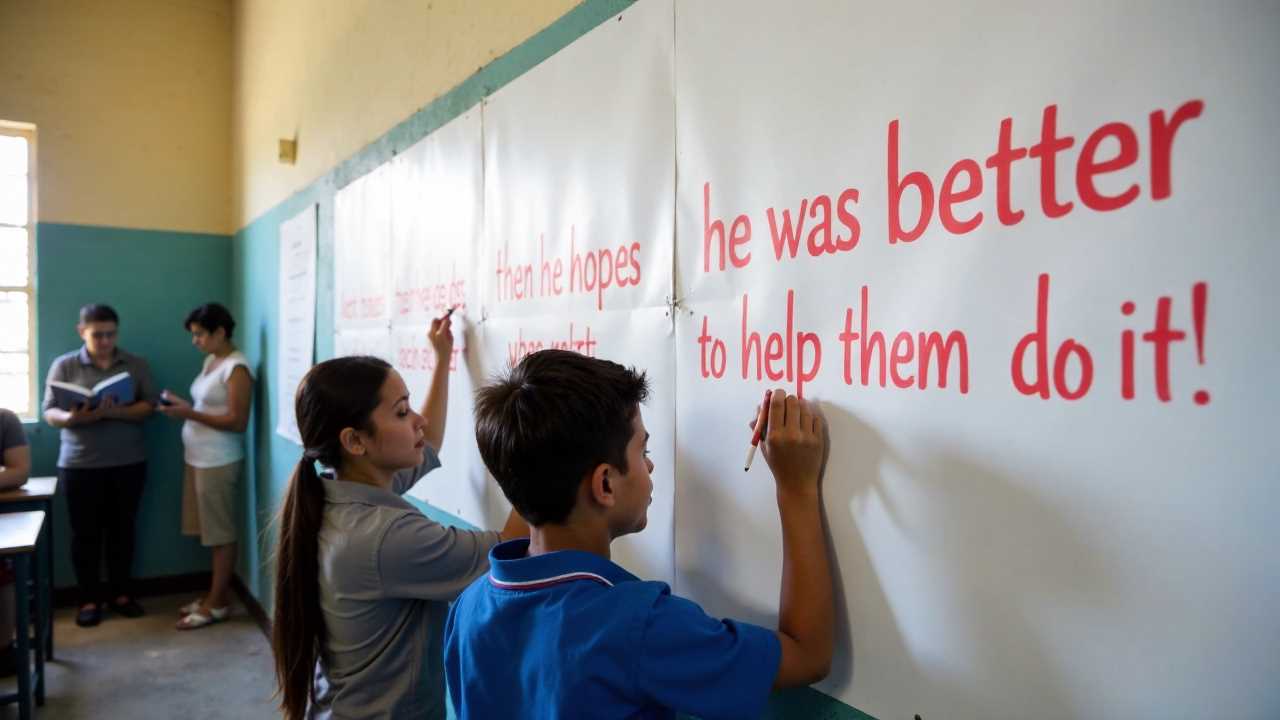
Understanding the Importance of Writing Skills Enhancement for Middle Grade Students
In today’s educational landscape, writing skills enhancement for middle grade students is not merely an academic requirement; it is a vital component of their overall literacy development. As students transition from elementary to middle school, their writing abilities must evolve to meet the demands of more complex assignments. This period is crucial for fostering creativity, expression, and engagement in writing, which will serve them well throughout their academic careers and beyond.
Writing is a powerful tool for communication. It allows students to articulate their thoughts, feelings, and ideas effectively. By focusing on enhancing writing skills, educators can help students develop a strong foundation in composition that will support their literacy journey. This article will explore various strategies to enhance writing skills, emphasizing the importance of revision and the role of creativity in fostering a love for writing.
Engaging Students Through Creative Writing Exercises
One of the most effective ways to enhance writing skills is through creative writing exercises. These activities not only stimulate the imagination but also encourage students to express themselves freely. By incorporating elements of storytelling, poetry, and personal narratives, students can explore different writing styles and find their unique voices.
For instance, teachers can introduce prompts that inspire students to write about their experiences, dreams, or even fictional scenarios. This approach not only makes writing enjoyable but also enhances their ability to convey emotions and ideas. Encouraging students to share their work with peers fosters a sense of community and engagement, making writing a collaborative and supportive experience.
The Role of Composition in Writing Skills Development
Composition is the backbone of effective writing. It involves organizing thoughts, structuring paragraphs, and developing coherent arguments. To enhance writing skills, students must learn the fundamentals of composition. This includes understanding the components of a well-structured essay, such as the introduction, body, and conclusion.
Educators can implement various strategies to teach composition effectively. For example, using graphic organizers can help students visualize their ideas and plan their writing. Additionally, providing examples of strong compositions can serve as a model for students to emulate. By breaking down the writing process into manageable steps, students can build confidence in their abilities and produce high-quality work.
The Importance of Revision in the Writing Process
Revision is a critical aspect of writing that often gets overlooked. Many students view writing as a one-time task, but the truth is that great writing is often the result of multiple drafts and revisions. Teaching students the value of revision can significantly enhance their writing skills.
Encouraging students to revisit their work allows them to identify areas for improvement. This process can include checking for clarity, coherence, and grammatical accuracy. Peer review sessions can also be beneficial, as they provide students with constructive feedback from their classmates. By fostering a culture of revision, students learn that writing is an iterative process, and they become more invested in producing polished pieces.
Fostering Engagement Through Collaborative Writing Activities
Engagement is key to enhancing writing skills. When students are actively involved in the writing process, they are more likely to take ownership of their work and develop a genuine interest in writing. Collaborative writing activities can be an effective way to foster this engagement.
Group projects, such as writing a short story or creating a class newsletter, encourage teamwork and communication. These activities allow students to share ideas, brainstorm, and provide feedback to one another. By working together, students can learn from each other’s strengths and weaknesses, ultimately improving their writing skills.
Incorporating Technology to Enhance Writing Skills
In today’s digital age, technology plays a significant role in education. Incorporating digital tools into writing instruction can enhance students’ engagement and creativity. Online platforms for writing and collaboration, such as blogs and shared documents, provide students with opportunities to publish their work and receive feedback from a broader audience.
Moreover, educational apps and software designed to improve writing skills can offer personalized learning experiences. These tools often include interactive exercises, grammar checks, and suggestions for improvement, making the writing process more accessible and enjoyable for students.
Encouraging a Lifelong Love for Writing
Ultimately, the goal of writing skills enhancement for middle grade students is to cultivate a lifelong love for writing. By providing students with the tools and strategies they need to succeed, educators can inspire them to view writing as a valuable form of expression rather than a chore.
Encouraging students to write for various purposes—whether for personal reflection, creative expression, or academic assignments—can help them appreciate the versatility of writing. Celebrating their achievements, whether big or small, can also motivate students to continue honing their skills.
The Path Forward for Writing Skills Enhancement
In summary, enhancing writing skills for middle grade students involves a multifaceted approach that prioritizes composition, literacy, engagement, creativity, revision, and expression. By implementing engaging activities, fostering collaboration, and embracing technology, educators can create a supportive environment that nurtures students’ writing abilities. As students develop their writing skills, they will not only become more proficient writers but also more confident communicators, equipped to express their thoughts and ideas effectively throughout their lives.
 Careers in EducationElementary EducationHigh School EducationEducational TechnologyTeaching StrategiesSpecial EducationPrivacy PolicyTerms And Conditions
Careers in EducationElementary EducationHigh School EducationEducational TechnologyTeaching StrategiesSpecial EducationPrivacy PolicyTerms And Conditions
